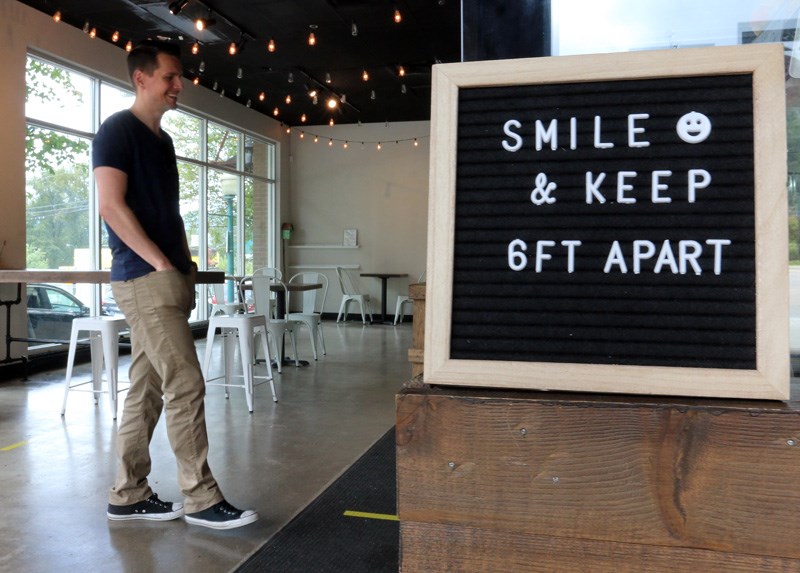From its Middle Eastern origins to the café cultures of Europe — and now the world — coffee’s circuitous journey has for centuries kindled conversation, comfort and even creativity.
Here in the Tri-Cities, where chains have dominated a relatively new coffee industry with Starbucks leading the way since the 1970s, a growing number of independent and franchise coffee shops have opened.
From small neighbourhood cafés that offer freshly-baked scones, places for groups to meet and Wifi so people can do business, to larger chains with drive-through services, the Tri-Cities has a thriving coffee industry, serving up a rich blend of hot and cold drinks to a culturally diverse population whose taste for espresso and roasted beans is yet to be quenched.
But is this burgeoning café culture on the way out because of higher costs, decreased traffic due to social distancing rules and new habits created by COVID-19?
The answer, it would appear, is ‘no.’

After visits to several shops in Port Moody, Port Coquitlam and Coquitlam this week, the Tri-City News found a somewhat scaled-back yet still thriving café culture, and that’s good news for local coffee drinkers.
For those needing a quiet space to escape from family or to socialize with friends, some local cafés re-open with limited table service over the last few of weeks as the province moved to ease restrictions.
“This is like another office for me,” acknowledged Everett Parkins, who purchased a coffee and freshly-made sandwich at Black Sugar Coffee House on St. Johns Street in Port Moody.
Although tables are few and the children’s area has been shut down for now, Black Sugar was turning a thriving, mostly take-out business.
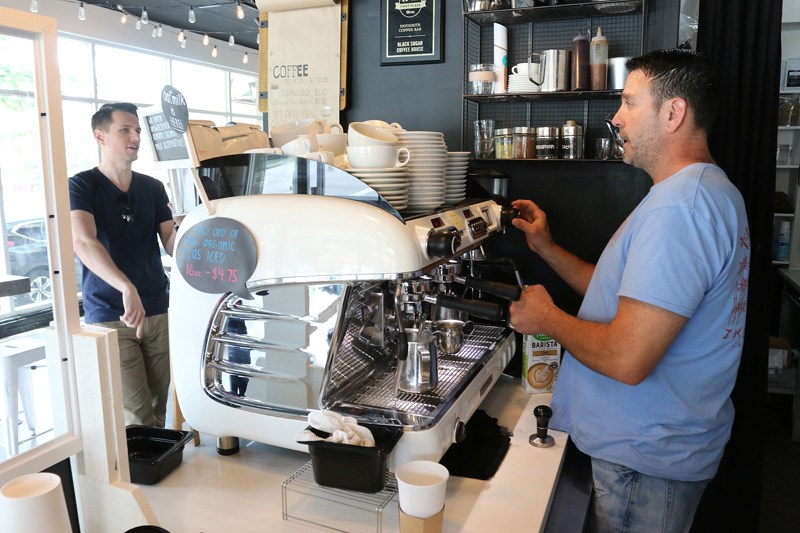
Tonia Morrone, who opened Black Sugar two years ago with husband Troy Palmieri, said she’s glad to see customers returning because it was too quiet with take-out only.
“It’s super important for people to connect in their neighbourhoods, cafés bring people together,” she said.
While Starbucks has closed down the street, a development that appears to mirror recent news reports that the coffee giant planned to shut down 200 stores in Canada and switch to more pick-up services, Black Sugar is fulfilling the niche of a neighbourhood café according to Marrone.
But there are challenges, she said, and it will be awhile before more tables can be opened up and the café culture resumed in full.
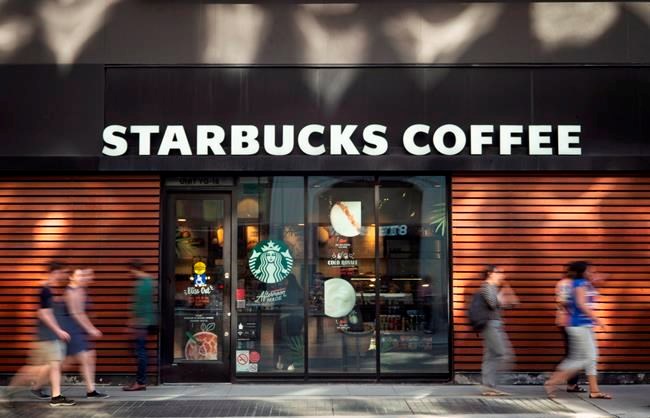
In Coquitlam, Café Divano caters to a bustling town centre and city hall clientele. But when the Tri-City News visited, the shop was quiet, with only a few tables open for seating and most people picking up their coffee to drink elsewhere.
Owner Lisa Beecroft admits there are challenges with re-opening her three cafés in Burnaby, Port Moody and Coquitlam. With sales reduced by 60% and costs rising on everything from compostable paper cups to salaries, including a new $14.60 minimum wage, maintaining a viable business during COVID-19 is difficult.
“It’s uncharted waters for everybody,” acknowledged Beecroft.
Customers who used to be able to sit for hours chatting with friends or surfing the internet on Café Divano Wifi are now being asked to be respectful of others and give up their seats when they’ve finished their drink to ensure turnover.
And the warm café vibe is somewhat inhibited by reduced seating and the need for plexiglass shields, hand sanitizer and paper towels everywhere. Still, Beecroft hopes it doesn’t deter customers.
“Educating people about the new reality is important and customers have to adapt,” she said, allowing that the future is somewhat scary as businesses and coffee drinkers navigate the new reality.
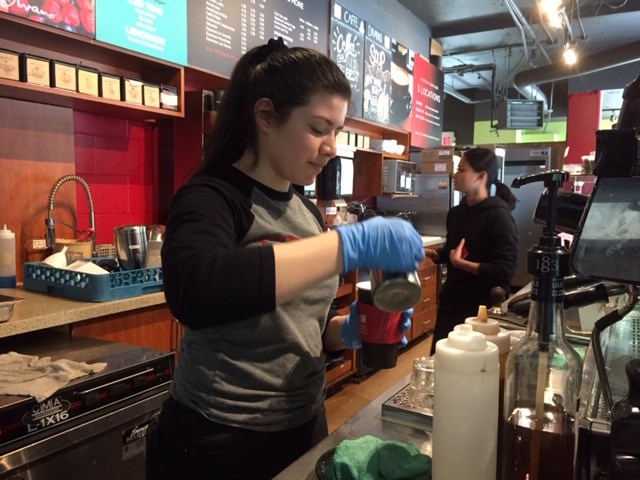
Jay Lee, who has owned Creekside Coffee Factory in Coquitlam for more than 10 years, is optimistic the café culture will survive. Sitting outside his shop Lee said he believes customers will come back and he’s looking forward to being able to seat more people one day.
He’s certain people will want to come back for “the atmosphere, the vibe, to relax, listen to music and eat scones.”
For many, cafés are like the extension of one’s private space, a living room where someone makes better coffee and sweets than one can get at home. Losing these social spaces would be a big hit to many Tri-City residents.
Melissa Gaitan who was tucked in a corner of Waves Coffee House on Shaughnessy Street in Port Coquitlam said she would miss having a place to go at the end of her day. While drinking a matcha latte and checking her smartphone, Gaitan said she enjoys having a quiet space to enjoy a beverage.
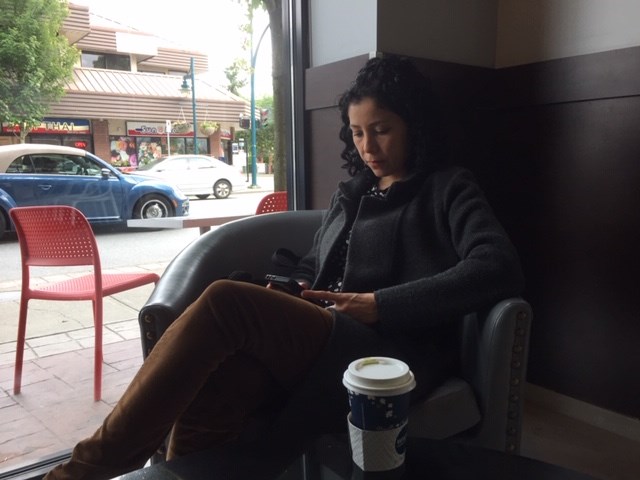
But it’s not just individuals, like Gaitan, who would miss the café culture if it were to be replaced by take-out only, said Chista Soroush, who owns the franchise with Fariboz Azarkeyvan.
Among the Port Coquitlam shop’s clientele, she said, are groups of seniors who come in to chat over a cup of coffee. Fewer are coming now and they tend to sit outside, but while tentative, she said, café culture appears to be resuming in the Tri-Cities, although slowly and with some challenges.
Still, the idea of going somewhere for a coffee — or tea — is still a popular one in the Tri-Cities, and Soroush hopes folks stay awhile.
“This is a place where people can connect with each other and get to know each other better.”
